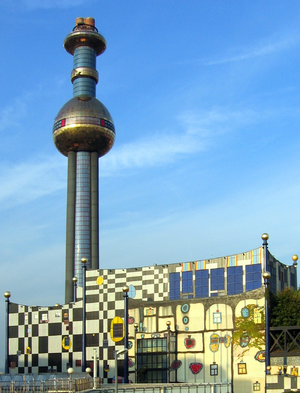Енергоперетворення відходів: відмінності між версіями
процес утворення електроенергії і/або теплоенергії при первинній переробці відходів або при використанні відходів як палива
Вилучено вміст Додано вміст
SoloWay (обговорення | внесок) Створена сторінка: {{перекладаю}} Image:District heating plant spittelau ssw crop1.png|thumb|right|300px|Spittelau incineration plant is one of several plants that pro... |
(Немає відмінностей)
|
Версія за 11:32, 30 травня 2019
| Цю статтю перекладають з іншої мови. Будь ласка, не редагуйте її, оскільки Ваші зміни можуть бути втрачені. Якщо ця стаття не редагувалася кілька днів, будь ласка, приберіть цей шаблон. Це повідомлення призначене для уникнення конфліктів редагування. Останнє редагування зробив користувач SoloWay (внесок, журнали) о 11:32 UTC (2572490 хвилин тому). |
Waste-to-energy (WtE) or energy-from-waste (EfW) is the process of generating energy in the form of electricity and/or heat from the primary treatment of waste, or the processing of waste into a fuel source. WtE is a form of energy recovery. Most WtE processes generate electricity and/or heat directly through combustion, or produce a combustible fuel commodity, such as methane, methanol, ethanol or synthetic fuels.[1]

Чит. також
- Field, Christopher B. "Emissions pathways, climate change, and impacts." PNAS 101.34 (2004): 12422–12427.
- Sudarsan, K. G., and Mary P. Anupama. "The Relevance of Biofuels." Current Science 90.6 (2006): 748. 18 Oct. 2009 <http://www.iisc.ernet.in/currsci/mar252006/748a.pdf>.
- Tilman, David. "Environmental, economic, and energetic costs." PNAS 103.30 (2006): 11206–11210.
- "Biofuels News". Chemical Engineering Progress. . FindArticles.com. 18 Oct. 2009. <[1][недоступне посилання з 01.12.2016]>
- "Waste to Ethanol." Centurymarc. 2007. 10